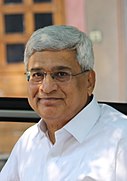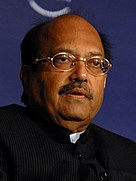2009 Lok Sabha elections
|
|
|||||||||||||||||||||||||||||||||||||||||||||||||||||||||||||||||||||||||||||
|
|||||||||||||||||||||||||||||||||||||||||||||||||||||||||||||||||||||||||||||
|
|
|||||||||||||||||||||||||||||||||||||||||||||||||||||||||||||||||||||||||||||
|
All 543 seats in the Lok Sabha 272 seats were needed for a majority |
|||||||||||||||||||||||||||||||||||||||||||||||||||||||||||||||||||||||||||||
|---|---|---|---|---|---|---|---|---|---|---|---|---|---|---|---|---|---|---|---|---|---|---|---|---|---|---|---|---|---|---|---|---|---|---|---|---|---|---|---|---|---|---|---|---|---|---|---|---|---|---|---|---|---|---|---|---|---|---|---|---|---|---|---|---|---|---|---|---|---|---|---|---|---|---|---|---|---|
|
|||||||||||||||||||||||||||||||||||||||||||||||||||||||||||||||||||||||||||||

|
|||||||||||||||||||||||||||||||||||||||||||||||||||||||||||||||||||||||||||||
|
|||||||||||||||||||||||||||||||||||||||||||||||||||||||||||||||||||||||||||||
India held general elections to the 15th Lok Sabha in five phases between 16 April 2009 and 13 May 2009. With an electorate of 714 million (larger than the electorate of the European Union and United States combined), it was the largest democratic election in the world till the Indian General Elections 2014 held from 7 April 2014.
By constitutional requirement, elections to the Lok Sabha (lower house of the parliament of India) must be held every five years, or whenever Parliament is dissolved by the President of India. The previous election to the 14th Lok Sabha was conducted in May 2004 and its term would have naturally expired on 1 June 2009. Elections are organised by the Election Commission of India (ECI) and are normally held in multiple phases to better handle the large electoral base and its security concerns. The 2009 elections were held in five phases. In February 2009, Rs.11.20 billion ($200.5 million) was budgeted for election expenses by the Indian Parliament.
A total of 8070 candidates contested for 543 Lok Sabha seats. The average election turnout over all 5 phases was around 59.7%. The results of the election were announced within three days of phase five, on 16 May 2009, following the first past the post system.
The United Progressive Alliance (UPA) led by the Indian National Congress formed the government after obtaining the majority of seats based on strong results in Andhra Pradesh, Kerala, Maharashtra, Rajasthan, Tamil Nadu, Uttar Pradesh and West Bengal. Manmohan Singh became the first prime minister since Jawaharlal Nehru in 1962 to be re-elected after completing a full five-year term. The UPA was able to put together a comfortable majority with support from 322 members out of 543 members of the House. Though this is less than the 335 members who supported the UPA in the last parliament, UPA alone had a plurality of over 260 seats as opposed to 218 seats in the 14th Lok Sabha. External support came from the Bahujan Samaj Party (BSP), Samajwadi Party (SP), Janata Dal (Secular) (JD(S)), Rashtriya Janata Dal (RJD) and other minor parties.
...
Wikipedia





